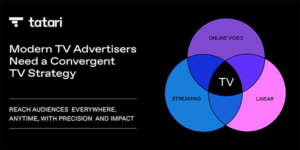Smaller agencies are already working with large clients.
You don’t have to read this Psychology Today article to recognize the unfortunately ubiquitous human tendency of self-sabotage. We don’t take meaningful action toward the attainment of our loftier goals because we’ve already convinced ourselves that it’s too difficult. Impossible even. We dream dreams and then tear them down.
Sound familiar on a personal level, perhaps?
Well, have you ever told yourself “massive companies only work with massive marketing agencies”? This is a professional self-sabotage red alert. Big companies are working with smaller marketing agencies. Right now. On an increasing basis. In fact, in a lot of cases, they’re seeking them out. Why?
Ten reasons your independent marketing agency is the most appropriate fit for a corporate company
1. No complacency.
Big agencies can get complacent. What would landing a huge client mean to you?
Exactly.
To a big agency, a corporate client is, well, just another client. Smaller agencies are beyond passionate about doing a good job for their client and this is a breeding ground for focus, creativity, and diligence.
2. The Ringlemann Effect.
This phenomenon is simply the tendency for individual members of a group to become increasingly less productive as the size of their group increases. As a smaller, lean agency, you’re not so big you need positions as a specialist as Team Envelope Licker. You’re a crack team of specialists with a broad skillset who are collaborative, creative, and productive.
3. No red tape.
Bureaucracy is the Kryptonite of innovation. Without the corporate rulebook, you’ve got a climate for outside-the-box thinking and, frankly, ‘just-getting-on-with-it-ness’.
4. Less sales-y.
Your agency needs to make money – obviously. But you’re not consumed by numbers. It doesn’t dictate every strategy and determines every action. There is a genuine excitement for, and love of, the work you do. This will be obvious.
5. Transparency.
Smaller agencies do not have the same rabbit warren-like structure of a mid to large business. There aren’t hundreds of departments. You won’t be put on hold while you’re transferred to Margaret from accounts and then back to Aaron from the Creative Team once your query has actually been understood. The staff at a smaller or boutique marketing agency are communicative and available. If someone other than the recipient of the call holds vital information material to the call – well, they can just shout their name across the office. The client can reach you immediately to know what’s going on.
6. Flexibility.
Smaller agencies are lean, flexible, and adaptable. If your client wants something done, you’ll get it done. You don’t have to put the project through operational protocols in order to correctly assign resources and project manage it to death. On the contrary, a smaller agency will just crack on with it. If the direction your client takes suddenly changes you can steer with immediacy and not come crashing off the road.
7. Relevance.
Andrea Brimmer, CMO at Ally Financial, in an interview with AdAge, said “I think we really like the ability for our smaller agencies to move quickly and move at the speed of the realities of the marketplace. And we really are attracted to that because we want to move at that same speed.” Let’s face it, if you’re good at what you do, you’re probably ahead of the curve. You can afford to experiment and take risks which makes you cutting edge. Forward-thinking companies want cutting edge.
8. No BS.
Boutique agency staff haven’t undergone the Corporate brainwashing that makes all staff use the same terminology and buzzwords which seems to have the effect of doubling the length of conversations while halving their meaning (side note: hilarious further reading on this phenomenon here). Clients want straight-talking. When they ask for an update, they want to-the-point answers; progress, timescales, barriers.
9. Affordability.
Some big agencies, used to working with massive businesses, will see them as a bit of a blank cheque. They will have over time ramped up their costs because they know a.) their clients can afford it and b.) their clients will pay it. Corporate clients are getting wise to this and when they come across a smaller agency who can maintain or improve quality at a lower price point… well, you can imagine the outcome.
10. Sunk Cost Fallacy.
Another phenomenon found in big business. The notion that a team or idea, having received historic significant investment, is continually used as a solution, regardless of its effectiveness. A Bigger Marketing Agency, having just invested significantly into email infrastructure, may try and shoehorn all their clients’ needs into that particular solution to justify it. Smaller agencies can remain extremely open-minded and take a top-down approach.
Go forth and multiply
First, let these reasons be your motivation to act and land your first corporate client. Beyond that, let these reasons permeate your strategies, thinking, and dialogue when engaging with corporate clients. Embody them as an agency and let them see that meeting their needs is central to everything that you do.
Finally, present clear and resounding reasons that decision-makers at large, potential clients can’t ignore when they make decisions as to who they should work with.



